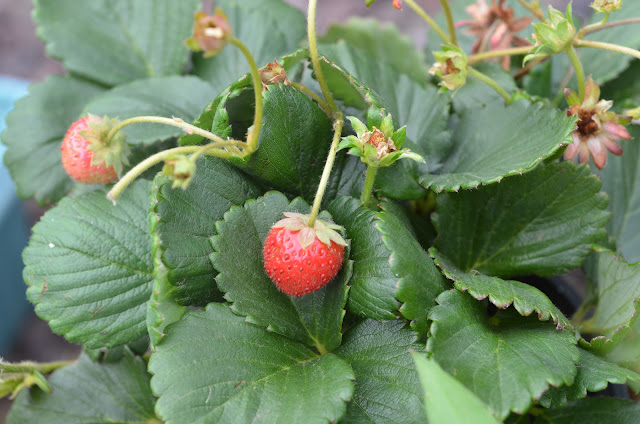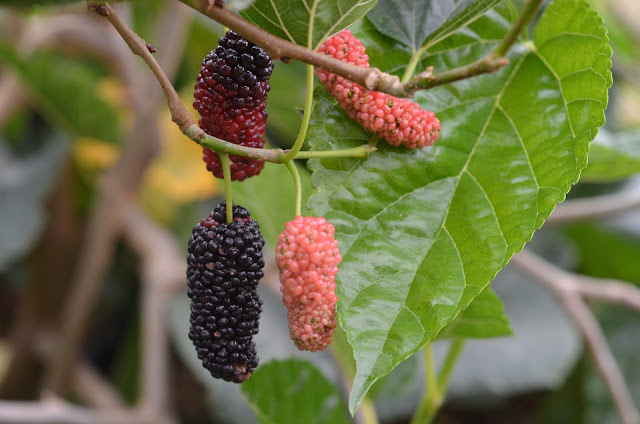I was hoping to make a post on some boysenberries that I was generously donated the plant of a few months ago. The beautiful Rebecca from Piccaninny Rugs happily opened her doors to me and even gave me some boysenberry plants as well as a strawberry plant on the day we ever met. I am so grateful to have met such a trusting and generous person with a confident look and a warm smile on her face. As for the boysenberries, unfortunately, they didn't work out well for us but we were able to have a few mouth-watering strawberries from her plants. We may have to try planting boysenberries once again next year.
 Talking about generosity... I think a lately found friend of mine can be awarded as one of the most generous people alive. Here is only one of the many examples that I have personally had with her:
Talking about generosity... I think a lately found friend of mine can be awarded as one of the most generous people alive. Here is only one of the many examples that I have personally had with her:
One day last year, as I was having some freshly picked mulberries from her mum's neighbour's garden at her place, I said "Mulberries are one of my all-time favourites since childhood". My comment triggered something and made her get up from her seat right away. She simply went to her backyard and brought a big pot with a newly planted mulberry tree in it. She told me that I could have it. I was not expecting it and wanted to turn down the offer as I thought it was too much to take from her but she insisted I would. I cannot thank her enough. We planted the tree on the ground and it thrived immediately! The whole family is in love with the much precious fruit!
Now, lets move onto the mulberry fruit and look at it in more detail.
Mulberries come in a variety. Some of the most commonly known varieties are the white, red and black mulberries. The white mulberries come originally from China and the black ones are believed to have originated in Iran but they have all travelled and made home in many other countries and continents in today's world. The main reason it was used initially was not for its fruit, but rather as a food to silkworms. Silkworms seem to enjoy the plant's leaves quite a bit. It was mostly later on that the mulberry fruit became more known and desired. The bark of the mulberry tree is also used for making paper but this post's highlight will be on the fruit.
Mulberries are refreshingly succulent, tart and sweet in taste. The ripen mulberries just melt in mouth. The immediate look of mulberry fruit is similar to a blackberry. They can be consumed raw or cooked. Mulberries make great jams and syrups but our family favourite is still the raw fruit.
Mulberries' health benefits are as follows.
Mulberries;
- contain high amounts of antioxidants, minerals and vitamins.
- have significant amounts of anthocyanins which have been proved to work against cancer, ageing and neurological diseases, inflammation, diabetes and bacterial infections.
- contain antioxidants that protect against stroke risks
- are low in calories
- are an excellent source of vitamin-C
- are rich in B-complex group of vitamins and vitamin K.
- have vitamin B-6, niacin, riboflavin and folic acid.
- contain small amounts of vitamin A and E
- have the types of antioxidants that protect the retina from harmful ultraviolet rays through light-filtering actions.



1 comment:
Mulberry trees seem to be fairly easy to grow. A dear friend of mine has 2 in her backyard that she grew from a clipping of a neighbors mulberry tree.
She taught me the best tip for mulberries. We all know they stain very easily, hands and clothing. Well if you go and pick an unripe mulberry, rub its juice on the stain and it will come right off!! :)
Post a Comment
I love comments. Thank you for leaving one!